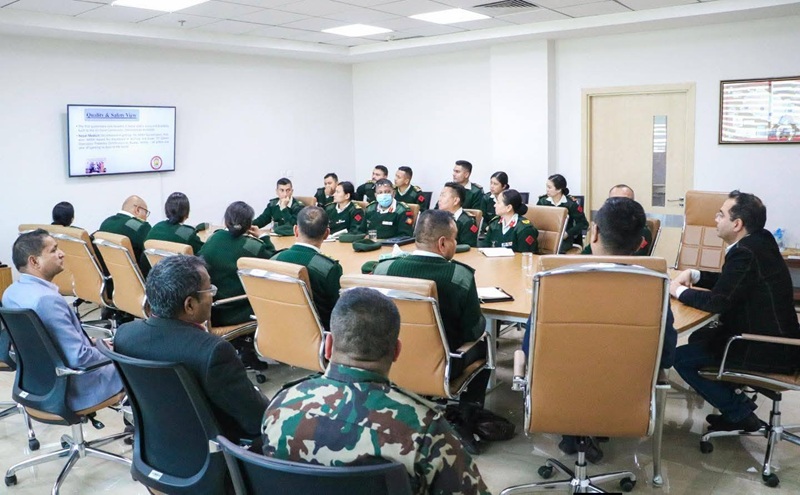Nepal’s Gen Z Takes to the Streets Against Corruption and Social Media Ban
8th September 2025, Kathmandu
For the first time in Nepal’s recent history, a large-scale, non-political youth-led protest movement has emerged, driven by Generation Z (Gen Z).
Gen Z Takes to the Streets Against Corruption
The protests, which started on social media platforms and have now spilled onto the streets of Kathmandu, are a direct response to rising corruption, misgovernance, and the government’s controversial decision to restrict social media. The spontaneous nature of the demonstrations, largely free from the influence of traditional political parties, is seen by many analysts as a significant turning point in Nepal’s democratic activism.
From Digital Outrage to Direct Action
What initially began as a wave of frustration and criticism on platforms like Twitter, Facebook, Instagram, and TikTok has now evolved into tangible, real-world protests. For Gen Z, who have grown up with these digital platforms, the internet is not merely a tool for communication but a primary space for political discourse, social organization, and economic activity. The government’s decision to ban major social media platforms on the pretext of non-registration was the final trigger that pushed this generation to move from online activism to street demonstrations.
The placards and slogans carried by the protesters reflect a deep-seated anger with the country’s political class. Messages like “Gen Z shouts, corruption out!” and “Leave the country, corrupt leaders!” are direct attacks on what they perceive as a broken system marred by widespread corruption and a lack of accountability. The presence of students in their school and college uniforms further highlights the authentic and spontaneous nature of the movement, distinct from the organized, often-coerced participation seen in politically-driven protests.
A New Kind of Protest Movement
A key feature that distinguishes this movement is its non-partisan and independent character. Unlike past protests in Nepal, which were typically organized and led by student or youth wings affiliated with major political parties, the Gen Z movement has actively rejected political affiliation. Organizers have made a clear effort to keep political party-affiliated groups from co-opting their cause, believing that the purity and integrity of their movement would be compromised by partisan agendas. The protesters’ use of posters with photos of top leaders from different political parties, including the Prime Minister and former Prime Ministers, symbolizes a broad, non-selective frustration with the entire political establishment.
The movement has garnered significant support from various segments of society, including teachers, doctors, artists, and entrepreneurs, who have publicly expressed solidarity with the protesting youth. This widespread support reinforces the idea that the protests are not about specific political parties but about a collective frustration with the state of governance in Nepal. Academics and political observers have noted that this kind of independent, non-party-led movement is unprecedented in Nepal’s recent history and could mark the beginning of a new chapter of political and social reform.
Government Response and Future Implications
In response to the demonstrations, the government has deployed heavy security forces in Kathmandu, setting up barricades at key intersections to prevent protesters from reaching restricted areas. While the security presence aims to contain the protests, the demonstrators have remained vocal and defiant, signaling their determination to be heard.
The protests reflect a culmination of several key issues: deep-rooted corruption, rising inflation and unemployment, and a perceived attack on freedom of expression through the social media restrictions. The central message of the movement is that the youth will no longer remain silent in the face of mismanagement and a lack of accountability.
This youth-led movement is a turning point for Nepal’s political landscape. It demonstrates that a generation that has grown up with digital technology is now leveraging its organizing power to practice direct democracy on the streets. While it remains to be seen if the protests can sustain momentum and lead to long-term reform, the movement has already sent a powerful message to the political elite: Nepal’s Gen Z demands integrity, accountability, and the freedom to express themselves, and they are willing to take to the streets to fight for their future.








